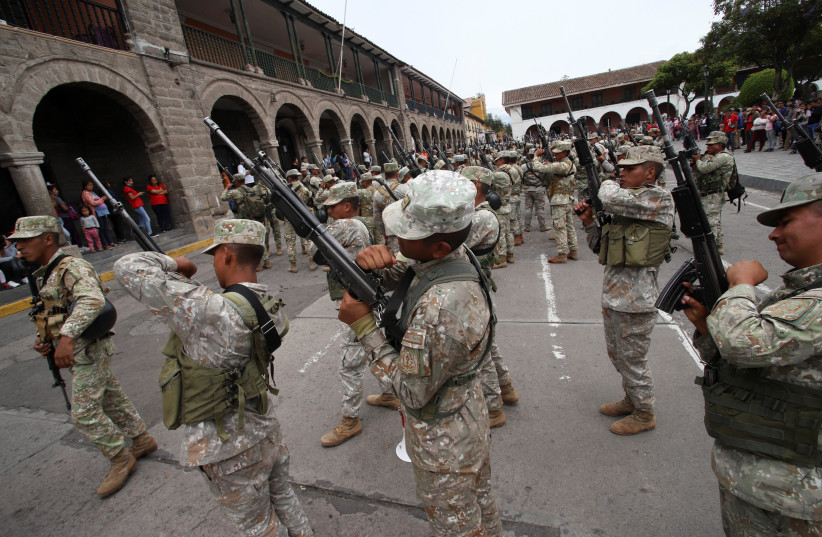Some Israelis who traveled to Peru are stuck in the country and are unable to leave due to ongoing protests and demonstrations, Hebrew media reported this week.
The Foreign Ministry issued a travel warning following riots in the country, N12 reported on Thursday.
"There are no regular flights because of the attempt to take over the airport," Rabbi Ofer Karipour, who lived in a Chabad house in Cusco for 16 years, said in an interview with N12.
"We stayed in Cusco and went on a three-day trip to the area of Machu Picchu," tourist Yael Haddad told N12. "At one point, the guide informed us that instead of driving half an hour by car to get to the restaurant where we were supposed to have lunch, we had to walk for two and a half hours."
Haddad also emphasized in the interview that there are no cars, buses, trains or flights.

Many Israelis also found themselves trapped in hostels waiting for the riots to blow over, Ynet reported on Thursday.
"At one point, the guide informed us that instead of driving half an hour by car to get to the restaurant where we were supposed to have lunch, we had to walk for two and a half hours."
Yael Hadad
In an interview with Ynet, Roy from Netanya said that he is "fighting to find open places to eat or buy bath soap or second-hand creams. Little by little, the budget is starting to run out – it's not that cheap here – we try every day to check what's going on with the flights and when we can get out of here."
Why is this happening in Peru? What's going on?
Demonstrations and political violence have been ongoing in the Latin American country since the arrest of president Pedro Castillo.
Castillo reportedly tried to dissolve the Peruvian Congress to prevent a vote on his impeachment. As a result, the Peruvian leader was accused of a coup d'état and arrested. His arrest caused hundreds of thousands of his supporters to go out to protest his imprisonment.
Protesters blocked key roads and forced the closure of five airports in Peru amid violent protests that flared up again on Friday and have left at least 16 dead, following Castillo's ousting and arrest.
The demonstrations also left many policemen and civilians injured.
Demonstrators are calling for early elections, the closure of Congress, a constituent assembly, and the resignation of new President Dina Boluarte, who took over from Castillo after he was removed from office by a congressional vote hours after he attempted to dissolve Congress.
Castillo has denied wrongdoing and says he remains the country's lawful president.
The death toll from the protests could be as high as 20, Eliana Revollar, head of Peru's ombudsman's office, said in an interview with local radio RPP.
Reuters contributed to this report.
